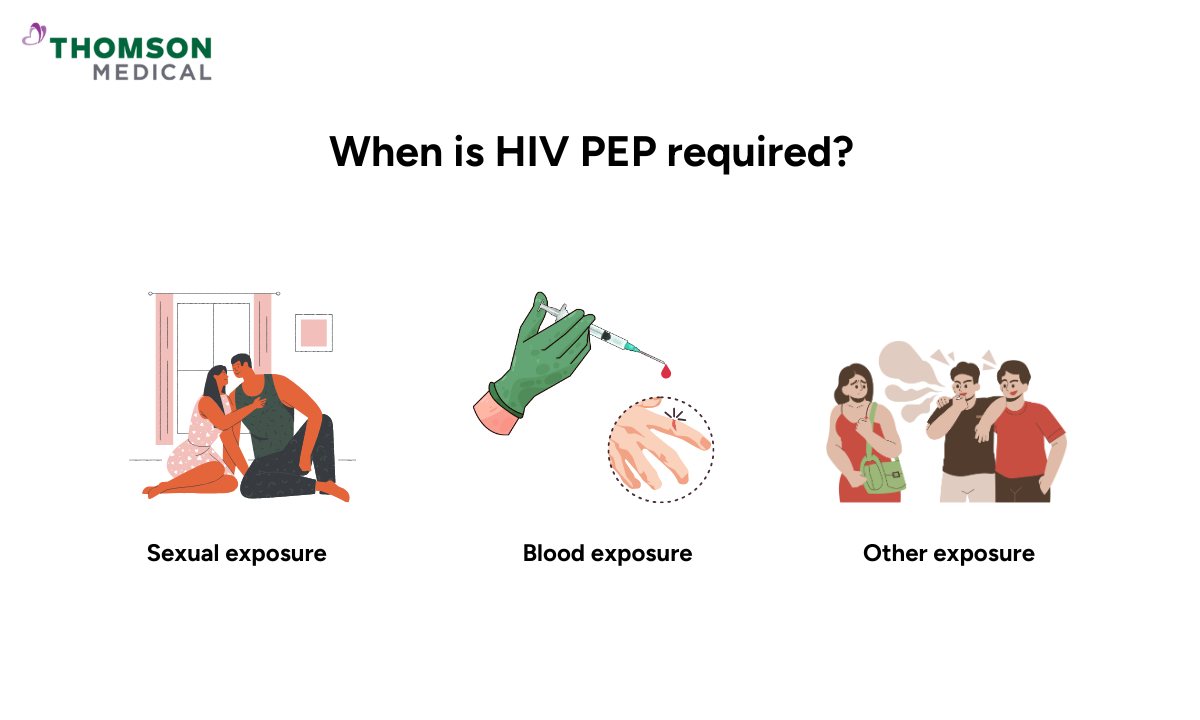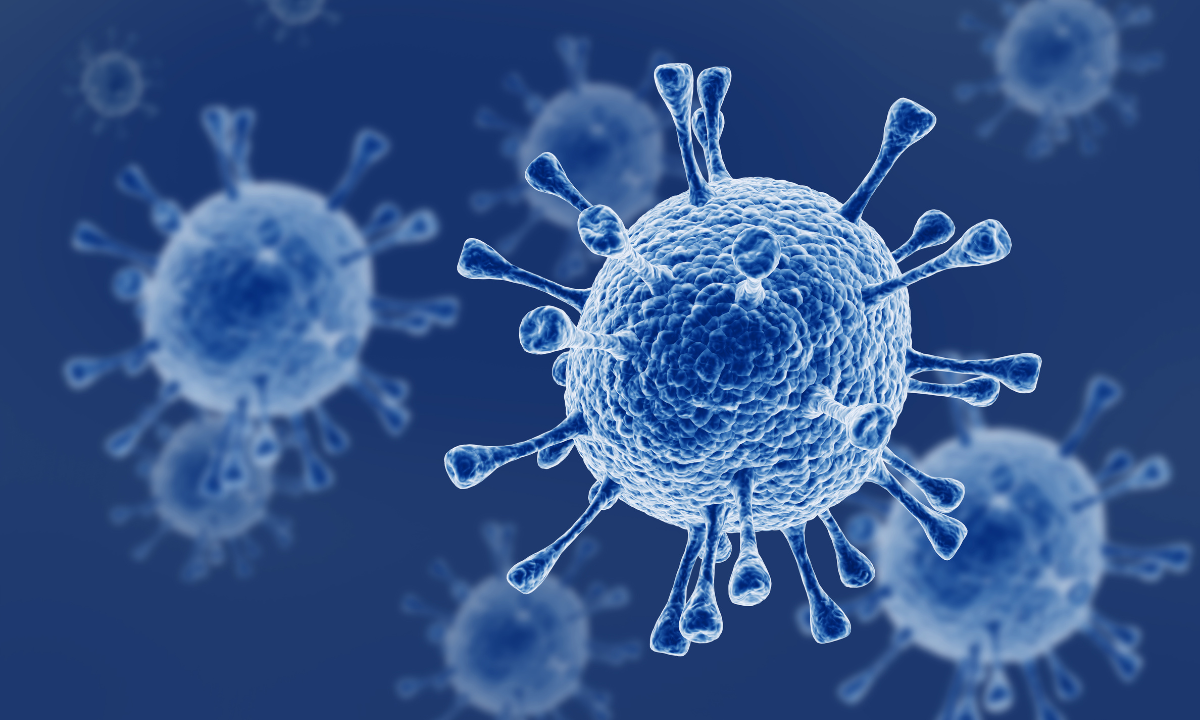It’s normal to feel worried when it comes to HIV. While HIV still has no cure, there are some treatments that can prevent infection after exposure. One of the most effective treatments is Post-Exposure Prophylaxis (PEP).
You might have heard about PEP before, but knowing how to use it right makes all the difference. Let’s take a closer look at what PEP is, when you should take it, how it works, and what to expect during the treatment.
What is HIV PEP?
PEP is an emergency treatment that helps prevent HIV infection after a possible exposure. It involves taking antiretroviral (ARV) medicines for 28 days to stop the virus from multiplying and spreading further.
When you take PEP early enough, it gives your immune system time to fight back before the virus can establish an infection in your body.
However, PEP cannot treat or cure HIV – it only prevents new infections. If you're already HIV-positive, PEP will not be effective.
It’s also different from HIV PrEP (pre-exposure prophylaxis), which is used for routine prevention to reduce the risk of infection during sexual activity.
Both treatments are important to prevent HIV, but they serve different purposes. If HIV PrEP is your protection before exposure, PEP is the emergency treatment you take after a possible exposure to HIV.
PEP is not for regular or long-term use, and you should not use it without consulting your doctor or any medical supervision.
When is HIV PEP required?

In most cases, your doctor may recommend PEP after the following situations:
Sexual exposure
You will need PEP if you had unprotected vaginal or anal sex with someone who is HIV-positive or whose status is unknown.
If your condom breaks or slips during sex, you should also check with your doctor.
Blood exposure
Sharing needles and syringes, or other injecting equipment, can increase the risk of HIV infection.
Healthcare workers who experience accidental needle-stick injuries may also require PEP.
If HIV-positive blood touches your open wound, cut, or sensitive areas, there’s also a risk of infection.
Other exposures
Your doctor may recommend PEP in cases of sexual assault with potential HIV risk.
While it’s rare, certain occupational exposures, in laboratories or among emergency responders, can also require PEP.
If you are exposed to saliva, sweat, tears, urine, and faeces, you will not be required to take PEP. Don’t worry, they don’t transmit HIV.
In case you’re unsure whether your situation requires PEP, it’s best to speak with a doctor immediately for professional advice.
When should PEP be started?
You should start PEP as soon as possible after potential HIV exposure, preferably within 24 hours and no longer than 72 hours (3 days) after the incident.
The earlier you start PEP, the more effective it is in preventing HIV infection. It gives the medicine a better chance to stop the virus from making copies.
If you take it too late (after 72 hours), the virus may have already entered your body and infected more cells. In this case, PEP will not be effective and is not recommended.
If you're concerned about possible exposure to HIV, have had unprotected sex, or simply want peace of mind, it is important to speak with a healthcare professional. Request an appointment with Thomson Medical to discuss your risk, get tested, and start PEP promptly. Our specialists will support you every step of the way, from testing to results, and if needed, help you begin treatment with a personalised care plan tailored to your health and lifestyle
Our doctor
Loading...
What does HIV PEP treatment involve?
A standard PEP treatment usually includes three ARV medications, combined into 1 or 2 pills daily. In Singapore, the common combination includes:
Tenofovir + Emtricitabine (Truvada®)
Dolutegravir (Tivicay®) or Raltegravir
The course lasts 28 consecutive days (about 4 weeks), and it’s important to take the medication every single day without missing any dose to ensure the best protection. If you stop using them or skip the doses, this may increase your risk of HIV infection.

What are the side effects of PEP?
Although PEP is considered safe, some people may experience mild and temporary side effects. These can include:
Nausea, vomiting, and diarrhea
Headache and tiredness
Difficulty sleeping, dizziness
Mild skin rash
Most side effects will go away on their own within a few days. Taking your medicine with healthy food and staying hydrated can reduce nausea. If you find the side effects uncomfortable, consult your doctor as soon as possible instead of stopping taking PEP. They can adjust your medication or help you manage the symptoms safely.
In rare cases, PEP also affects your liver or kidney function. These are usually monitored through routine blood tests.
What tests are required before taking HIV PEP?
Before starting PEP, your doctor will recommend some tests to check your health condition and make sure the treatment is suitable for you. These include:
HIV test is required to confirm you don’t already have HIV
Kidney and liver function tests is performed to ensure medicines are safe for your organs
Hepatitis B & C tests is done since ARVs also work against hepatitis B
Pregnancy test for women of childbearing age
Once you complete the treatment, you may need to get tested for HIV again at 6 weeks, 3 months, and 6 months after exposure. In some cases, your doctor will recommend additional follow-up, depending on your results.
Getting tested before and after PEP helps ensure the treatment is safe and working for you. It may also help detect any other infections early. Regular testing gives you peace of mind and allows your doctor to provide the right support for your overall sexual health.
How much is HIV PEP in Singapore?
The cost of HIV PEP can vary depending on where you receive the treatment.
Public hospitals or clinics:
Around SGD 300–600 for a full 28-day course (subsidies may apply if you’re eligible)
Private clinics:
Around SGD 600–1,200, depending on consultation fees, lab tests, and the brand of medication used.
To be sure, you should check with healthcare clinics in advance to choose the best one that fits your budget.
PEP works best when started early. If you think you’ve been exposed to HIV, request an appointment with a Thomson Medical specialist to receive proper evaluation, testing, and treatment options.
FAQ
What is PEP for HIV?
PEP is a 28-day course of HIV medicines taken after possible exposure to the virus. It helps reduce the chance of infection, but it cannot cure HIV.
For best results, you must start taking PEP as soon as possible, ideally within 2 hours and no more than 72 hours after exposure.
How long is PEP taken for HIV?
The treatment lasts for 28 days (about 4 weeks). You’ll need to take the medicine every day without missing any doses. It will not work if you stop early or skip the doses.
Can you still get HIV when on PEP?
Yes, there is still a small risk. PEP is highly effective but not 100% guaranteed. Its success depends on how soon you start (within 72 hours) and whether you complete the doses. Following the schedule correctly is crucial in lowering your risk of infection.
Is PEP the same as ARVs?
Yes. PEP uses the same antiretroviral (ARV) medications that are used to treat HIV.
Is PEP 100 per cent effective?
No. PEP provides strong protection if you start promptly and correctly, but it’s not a guarantee.
If you suspect HIV exposure, see a doctor immediately for professional advice.
Is PEP for all STDs?
No. PEP only prevents HIV. It doesn’t prevent other sexually transmitted diseases (STIs) like gonorrhoea, chlamydia, syphilis, and hepatitis B. If you think you might have been exposed to these infections too, your doctor will arrange the right tests and treatments for you.
The information provided is intended for general guidance only and should not be considered medical advice. For personalised recommendations based on your medical conditions, request an appointment with Thomson Medical.
For more information, contact us:
Thomson Specialists (Women's Health)
Thomson Women's Clinic (TWC)
- Novena:
6592 6686 (Call), 8611 8986 (WA) - Bukit Batok:
6569 0668 (Call), 8686 3525 (WA) - Choa Chu Kang:
6893 1227 (Call), 8282 1796 (WA) Jurong:
6262 8588 (Call), 6262 8588 (WA)- Katong (female doctor):
6970 2272 (Call), 8611 9020 (WA) - Punggol:
6243 6843 (Call), 8811 0328 (WA) - Sembawang: 6753 5228
- Sengkang: 6388 8125
- Serangoon (female doctor): 6382 3313
- Tampines: 6857 6266
- Tiong Bahru: 6276 1525
